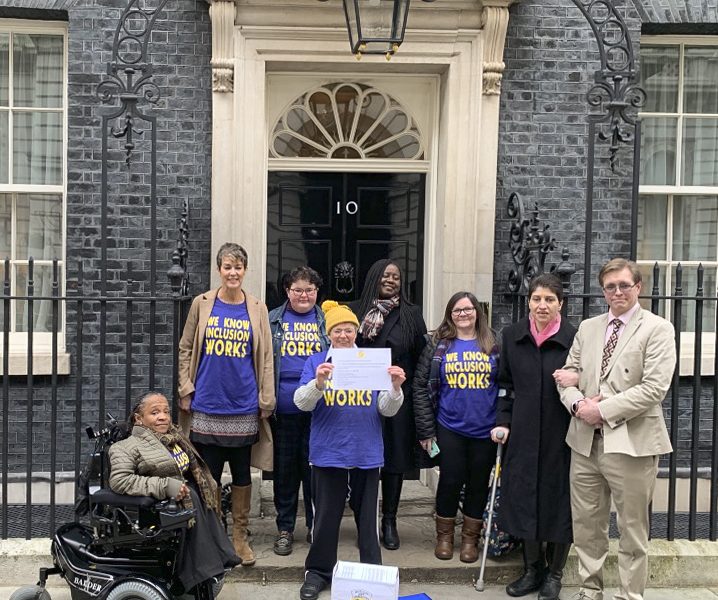Listen to the audio version
Inclusion Now 55, Spring 2020
SEND funding crisis, international inclusive practice, ALLFIE’s national Day of Action and more.

Welcome to the 55th edition of Inclusion Now. Audio and text versions are in the articles below or you can read it in magazine format on Issuu (not screenreader friendly).
To receive three issues of Inclusion Now a year on publication date, you can subscribe here. Subscribing supports our work and helps us plan for the future.
Inclusion Now is produced in collaboration with World of Inclusion and Inclusive Solutions
Inclusion Now 55, Spring 2020
ALLFIE’s Director, Michelle Daley, reflects on this issue and the current state of the movement for inclusive education.
ALLFIE is continuing to add resources to our website, and the latest is an article aimed at education students on some of the key issues around inclusive education.
Coventry based disabled young person’s collective, the RIP:STARS, report back on giving evidence to the Commons Education Select Committee.
In the late 90s Malta began to move towards a more inclusive, community-based education system. On a recent visit Richard Reiser met Education Officers and representatives of the Malta Federation of Organisations of Persons with Disabilities (MFOPD), to visit and research education facilities including University of Malta and Dingli Sccondary School – here’s what he discovered.
If you’re feeling unwell, upset or anxious all the time or your physical health isn’t good and you depend on a lot of help, then being included in classroom activities and making the best of opportunities to learn or just spending time hanging out with friends in the playground is never going to feel easy, and may even make you feel worse.
College student Martine Harding reports back on ALLFIE’s national Day of Action.
In 2018, ALLFIE was given funding from the ‘Disability Research on Independent Living and Learning’ (DRILL) programme to lead a project that examined whether Accessibility Plans were effective in driving inclusive education in English secondary schools post Equality Act 2010.
At the age of two I was given the present of a brother who had severe learning disabilities and mobility difficulties. For as long as I can remember I have been an advocate-sister. The strong bond I have with my brother and our shared experiences have shaped my life greatly, including my professional choices and the causes I support. The rights of people with disabilities are part of the fabric I am made of – much more than a cause, it is who I am.
ALLFIE has now published its revised inclusive education manifesto, reflecting the core changes in legislation, context and the Government at large. Our manifesto is set in the context of increased state funded segregation, greater challenges faced by education providers and less flexibility within the education system.
Promises made by the UK Government on school and SEND funding are not what they seem. Even if true, which they are not, they do nothing to deal with structural problems created by wider Government Policy, that make it increasingly difficult for mainstream schools to successfully include disabled children and those with special educational needs. The Government needs to recognise the reality and act.
“I am concerned about my Local Authority’s ability to properly fund the SEND provision that all children with special educational needs require to be educated in mainstream education. All the mainstream schools in our Local Authority are running a deficit budget. That means that many of our children will see cuts to SEND provision. I understand that the Government has reviewed the funding regulations which means less flexibility for Local Authorities to use funding, such as reserves, elsewhere to cover the shortfall. What can I do?”